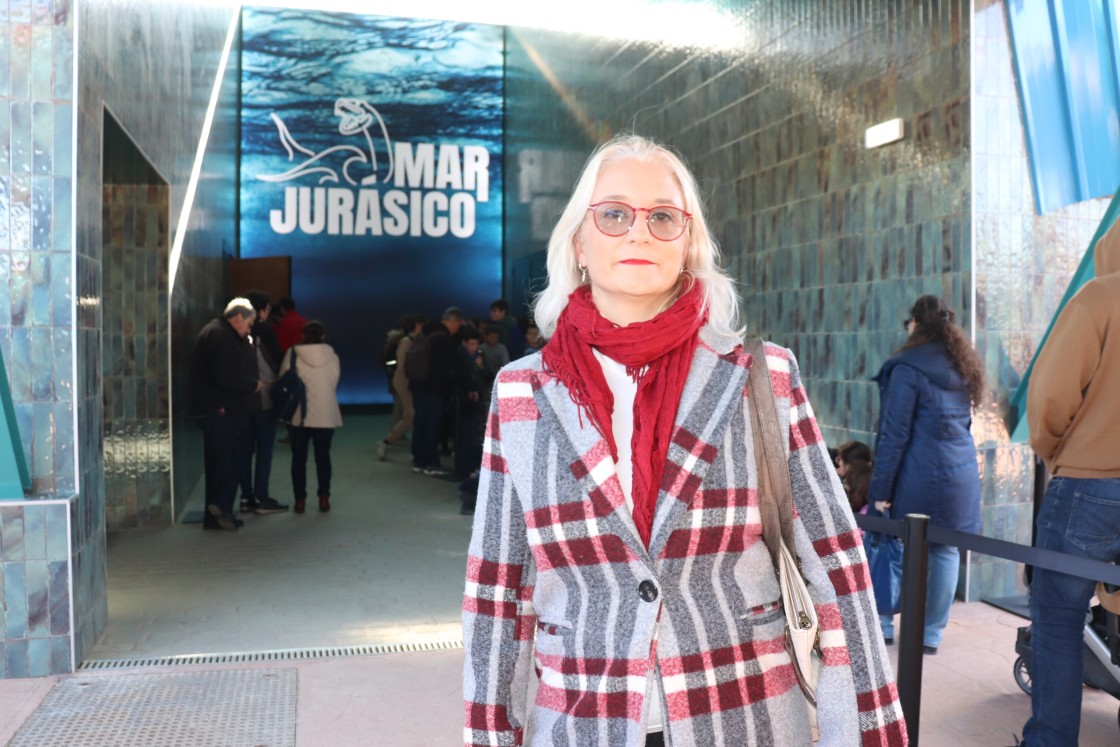The Spanish association GRINpatias has received 11,570 euros from Dinópolis to help develop its projects, half of the funds raised during this year’s Solidarity Day held at the paleontological park. The organization’s vice president, Rosario Salas Marquez, traveled to Teruel a few days ago to receive the donation.
– What is GRIN pathology?
-GRINpathy is a gene in our DNA. Deformations in this gene are responsible for the disease.
-How does this disease behave in people?
– It manifests itself as muscle destruction. Many children cannot walk and almost sit in wheelchairs. They suffer from epilepsy and gastroenteritis, which have a great impact on children; dysphagia, first of all, is intellectual disability, because some children cannot speak and they have difficulties in learning. For example, my daughter can neither read nor write. She knows almost nothing, including numbers and sums. Symptoms vary.
– Is there lifetime maintenance?
-Yes. There is currently no cure. There is currently ongoing research on a product called L-serine, which is being tested and has seen some improvement, but little effect.
-Are there many cases?
-No, there are about fifty or sixty cases in Spain as a whole, and worldwide it will be five hundred, more or less.
-Do we know how this is triggered? What are the factors that cause it?
– No, because in our family, for example, my daughter is something new, she is the first, she does not come from genetics. So we don’t know why it was really developed for her.
– When was the association established and what is its purpose?
-The association was founded in 2019, first of all, to make people aware of this disease so that we can carry out research and provide medicines to these specific children. Yes, they tell us it has to be a personalized medicine because there are so many symptoms, which also makes drug development difficult.
-So what activities will your association carry out, because I know what you want most right now is to promote this little-known rare disease, right?
-What we want is for people to know about it. Usually we hold events where every parent tries to contribute their grain of sand and if their city or town organizes a fair or solidarity market we try to put on the market the goods we usually have and from there what we can sell is What we donate to investigations so that progress can be made. Every parent contributes in this way or, as in the case of Dinopolis, it helps us and contributes greatly through the Solidarity Day.
-What is the experience of this disease in the family?
-It’s hard at first because you see he has something but you don’t know what it is and when they tell you and explain it’s an extremely rare disease you don’t know where to go until you already know Got to know another family. I was lucky that the association was already set up and I had the support of another family, but it was a little difficult at first and then you get used to the idea and all you try is to help your daughter have a better quality of life. .
– Is it necessary for associations to support each other between families in the case of this unknown disease?
-Yes, at first you find yourself completely lost. I got to know a few families over the phone and they were very nice. They called me and I remember talking to a colleague on the phone for hours, commenting on how I was feeling, what she was going through and encouraging us. I gave them to her as she gave them to me. In fact, I would feel even more lost without this association.
-What do you think Dinosaur City thinks of you?
– We are very happy, grateful and excited about this great contribution from Dinópolis, who remembers us and is able to continue this work because his help greatly advanced the research. They contact us to give us information and send them a project.
-What advice would you give a family when they find out their son or daughter has this disease?
– If possible, please contact us or the Spanish Federation of Rare Diseases and ask them to give you the GRINpatias telephone number. We don’t mind spending three hours on the phone giving people the support they need.

